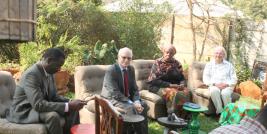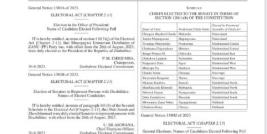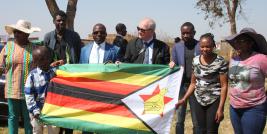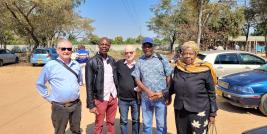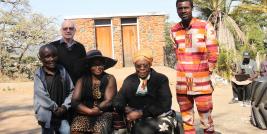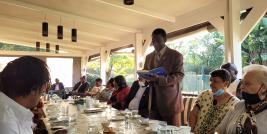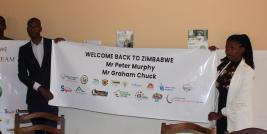It is now the beginning of October, and the national elections took place on July 30 – seemingly an age ago. It took the Supreme Court challenge before a new government could be sworn in on September 7. All the while the defeated MDC Alliance Presidential candidate, Nelson Chamisa, maintained that he had won the election outright, but was cheated by ZANU-PF and cheated next by the Supreme Court, and until today he has continued to insist that President Mnangagwa and his government are illegitimate. He ordered his MPs to walk out of parliament during the new President’s State of the Nation Address.
This is a political impasse, but one which the population appears to be ignoring. Reports indicate that the cities and rural areas are calm despite the ongoing agitation from Chamisa. The new President, his parliamentary majority and his new Cabinet appear secure for now.
The shooting of protesters and bystanders in Harare by the military on August 1 still casts its pall over the country, greatly undermining Mnangagwa’s claim that there is a genuine new beginning. His Commission of Inquiry is now underway.
And of course, the economy continues to be in free fall, also undermining the domestic appeal of the “open for business” mantra from the new President. Both cash and petrol are in short supply. And a cholera outbreak has underlined the depth of the problem.
Even so, the UK and the United States of America are looking for ways to kick-start the economy, suggesting that they are not buying the line that nothing has changed and that a ZANU-PF dictatorship continues from the Mugabe era.
The entire dynamic of the election was to have main players rapidly switch historic roles. Mugabe, the deposed dictator, backed the MDC Alliance and in particular Nelson Chamisa. This is no surprise since Mugabe is seeking revenge against those who deposed him – the group led by Mnangagwa. Mnangagwa on his part assumed the mantle of democratic change once carried so well by the late Morgan Tsvangirai. And Nelson Chamisa became a shameless demagogue and authoritarian more in the style of Mugabe.
Such rapid change in political configuration has forced major upheavals in grassroots politics, especially in MDC and in ZANU-PF. Other players have collapsed, revealing no genuine appeal or support – like former ZANU-PF Vice-President Joice Mujuru, former MDC Vice-President Thokozani Khupe, and lesser stars like Tendai Biti. Underneath this turmoil there are the trade unions in ZCTU, the women’s organisations especially the Association of Women’s Clubs, the students and young farmers. They are being forced to realign and reorganise in order to pursue their democratic aspirations and their urgent economic needs.
Zimbabwe Information Centre, Australia
October 2, 2018

